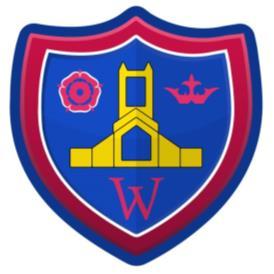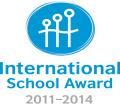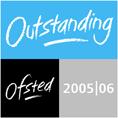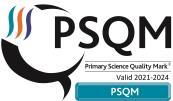WALMSLEY CE SCHOOL

BLACKBURN ROAD, EGERTON, BOLTON BL7 9SA
TELEPHONE: 01204 332650


Email: office@walmsley.bolton.sch.uk




HEADTEACHER: MRS JOANNA ATHERTON
June 2023
Information about our new Personal, Social, Health Education programme: Jigsaw. https://www.walmsley.bolton.sch.uk/curriculum/pshe1


Dear Parents/Carers,
At Walmsley CE School, from September 2023, we will be using Jigsaw, the mindful approach to PSHE, as our scheme of work to teach PSHE (Personal, Social, Health Education). The programme consists of 6 half-term units, each with 6 lessons. We call these Jigsaw ‘Puzzles’. (Being Me in My World, Celebrating Difference, Dreams and Goals, Healthy Me, Relationships and Changing Me).
In the first half of the Summer Term we will be teaching the Relationships Topic. Relationships Education is statutory (DfE Guidance 2019) and parents cannot withdraw their children from it.

We develop positive relationships throughout the school year and through each Jigsaw Puzzle, but there is a more specific focus on this in this Unit of Work, with children learning about different relationships we have with our friends, family and communities (including staying safe online), and how these relationships change as we grow.
In the second half of the Summer Term we will be teaching the ‘Changing Me’ Puzzle. This helps children learn to cope positively with all sorts of change. In Key Stage 2 they will learn about puberty in this Puzzle. In Key Stage 1 we introduce scientific terminology for body parts, including genitalia, partly for safeguarding reasons and partly to lay the foundations for learning about puberty later.
The purpose of this letter is to inform you of the statutory requirements placed on schools, and what we plan to teach when for this topic in PSHE this term.

The government statutory guidance gives parents the right to request to withdraw their child from Sex Education, and this letter explains more about what Sex Education is and how you can find out more about this if you wish to.
Health, Relationship and Sex Education
Health and Relationship Education is statutory in all primary schools, and it is recommended that all primary schools have a Sex Education programme that is tailored to the age of the pupils.

The Health and Relationship curriculum content is woven throughout the entire programme of Jigsaw, with a specific focus within the ‘Healthy Me’ and ‘Relationships’ Puzzles.
In the Early Years and Key Stage 1, the focus is on life cycles, valuing our own bodies and learning some vocabulary for the external body parts, that we might use if we needed to talk to an adult such as a nurse or a doctor.
In Key Stage 2,there is a particular focus on the Health Education element of puberty in (including menstruation) and the changes that happen inside and outside the body. This is taught in a way that helps pupils feel prepared for the main changes that happen before puberty starts, and to encourage them to talk to an adult at home or at school if they have any questions.
At Walmsley CE School, we define ‘Sex Education’ as Human Reproduction. Sex Education is part of our PSHE/RSE curriculum and we teach it through the Jigsaw ‘Changing Me’ topic. Please note that animal reproduction is a statutory element of the Science curriculum and at Walmsley CE School we deliver this including human reproduction in Years 4, 5 and 6 of Summer Term.
The right to withdraw
As parents you have the right to withdraw your child from the non-statutory elements of our teaching. These will be the lessons on human reproduction (please refer to the contents table below for the exact lessons). You are unable to withdraw your child from any lessons within Relationship or Health Education (this includes puberty and menstruation). If you do wish to withdraw your child from the human reproduction lessons, please contact Mrs Atherton so we can discuss the implications of withdrawing.
What will my child be taught about puberty and human reproduction?
WehavereviewedthecontentintheJigsawProgrammeaspartofourpolicyreview and the content below reflects the decisions made as part of this process with the staff, governors and parents. Our policy is being reviewed and appoved by Governors.
The Jigsaw unit ‘Changing Me’ is taught in the Summer Term and contains 6 pieces (lessons). Each year group will be taught appropriate to their age and developmental stage. This content will be taught by the class / PPA cover teachers. We will not teach beyond the remit of the year group. If questions are asked that the teacher feels are inappropriate or are beyond the content for that year group, the teacher may ask the child to ask their parent/carer, or the teacher may acknowledge the question and explain that we will learn about that aspect at another time.
The table below only covers the lessons (pieces) that relate to life cycles, the human body, puberty and human reproduction. The lessons (pieces) that parents are able to withdraw their children from are highlighted in red font.
School Year group
Ages45
Piece (lesson) Number and Name
Piece 1- My Body
Learning Intentions relating to Puberty and Human Reproduction
● I can name parts of the body.
Recepti on
Ages56 Year 1
Piece 3 –



Growing Up
Piece 1 Life Cycles
Piece 2 Changing Me
Piece 3 My Changing Body
Piece 4
Boys’ and Girls’ Bodies
Ages67 Year 2
Piece 1 Life Cycles in Nature
Piece 2 Growing from Young to Old
Piece 3 The Changing Me
Piece 4
Boys’ and Girls’ Bodies
Ages78 Year 3
Piece 1 How Babies Grow
Piece 2 Babies
● I understand that we all grow from babies to adults.
● I am starting to understand the life cycles of animals and humans
● I understand that changes happen as we grow and that this is OK
● I can tell you some things about me that have changed and some things about me that have stayed the same
● I know that changes are OK and that sometimes they
● I can tell you how my body has changed since I was a baby
● I understand that growing up is natural and that everybody grows at different rates
● I can identify the parts of the body that make boys different to girls and can use the correct names for these: penis, testicles, vagina, vulva, anus
● I respect my body and understand which parts are private
● I can recognise cycles of life in nature
● I understand there are some changes that are outside my control and can recognise how I feel about this

● I can tell you about the natural process of growing from young to old and understand that this is not in my control
● I can identify people I respect who are older than me
● I can recognise how my body has changed since I was a baby and where I am on the continuum from young to old
● I feel proud about becoming more independent



● I can recognise the physical differences between boys and girls, use the correct names for parts of the body (penis, testicles, vulva, anus, breast, nipples) and appreciate that some parts of the body are private
● I can tell you what they like/don’t like about being a boy/girl
● I understand that in animals and humans lots of changes happen from birth to fully grown, and that usually it is the female who has the baby
● I can express how I feel when they see babies or baby animals
● I understand how babies grow and develop in the mother’s uterus and understand what a baby needs to live and grow (New vocab – uterus /womb)
● I can express how I might feel if they had a new baby in their family
Piece 3
Outside Body Changes

Piece 4
Inside Body Changes
● I understand that boys’ and girls’ bodies need to change so that when they grow up their bodies can make babies
● I can identify how boys’ and girls’ bodies change on the outside during this growing up process (introduce term puberty)

● I can identify how boys’ and girls’ bodies change on the inside during the growing up process and why these changes are necessary so that their bodies can make babies when they grow up (introduce vocab sperm, ovaries, egg, Ovum/ Ova, womb/uterus, vagina and period)
● I can recognise how I feel about these changes happening to me and know how to cope with these feelings

Note – this lesson briefly introduces the term ‘period’ and explains what a period is in simple terms.

Ages89 Year4
Piece 1
Unique Me
This lesson does not attempt any explanation of how the spermandeggcometogether.Ifachildasksthequestionwe will explain that the male and female decide when this happens and we will learn more about it at another time.
● I understand that some of my personal characteristics have come from my birth parents and that this happens because I am made from the joining of their egg and sperm.
● I appreciate that I am a truly unique human being Piece 2
Having A Baby Parents have the right to withdraw children from this session as it is classed as human reproduction .
Piece 3
Puberty and Menstruation
● I can correctly label the internal and external parts of male and female bodies that are necessary for making a baby and explain in simple terms how this happens
● I understand that having a baby is a personal choice and express how they feel about having children when they are adults
● Note: This is a simple introduction to sexual intercourse with the teacher using a script which includes ‘an especially close and loving embrace which allows the sperm to be released through the penis into the vagina.’.
● I can describe how a girl’s body changes in order for her to be able to have babies when she is an adult, and that menstruation (having periods) is a natural part of this
● I have strategies to help me cope with the physical and emotional changes I will experience during puberty
Note – teachers will also recap the puberty learning for both girls and boys from year 3 and revisit some of the content if required.
Age 910 Year5
Piece 2
Puberty for Girls
● I can explain how girls’ bodies change during puberty and understand the importance of looking after themselves physically and emotionally
● I understand that puberty is a natural process that happens to everybody and that it will be OK for me
Piece 3
Puberty for Boys
Piece 4
Conception
Parents have the right to withdraw children from this session as it is classed as human reproduction .
● I can describe how boys’ and girls’ bodies change during puberty
● I can express how I feel about the changes that will happen to me during puberty
I understand that sexual intercourse can lead to conception and that is how babies are usually made. I also understand that sometimes people need IVF to help them have a baby
I appreciate how amazing it is that human bodies can reproduce in these ways
Piece 3 Babies –Conception to Birth Parents have the right to withdraw children from this session as it is classed as human reproduction .
Piece 4 Attraction
● I can explain how girls’ and boys’ bodies change during puberty and understand the importance of looking after yourself physically and emotionally
● I can express how I feel about the changes that will happen to me during puberty
● I can describe how a baby develops from conception through the nine months of pregnancy, and how it is born
● I recognise how I feel when I reflect on the development and birth of a baby
● I understand how being physically attracted to someone changes the nature of the relationship
● I can express how they feel about the growing independence of becoming a teenager and their confidence that they can cope with this
We are eager to work in partnership with parents


Please be aware that your child may ask you questions on what they have learnt. There is a leaflet attached to this email which gives tips on how to talk to your child about puberty and human reproduction. There is also the Usborne series of growing up books (https://usborne.com/gb/books/series/growing-up) that you might find useful.
We hope that the information we have provided is useful in understanding what your child will be learning this term.
Please refer to our new PSHE Jigsaw page of our website. Our Curriculum, PSHE, click the link… or click the link below:
https://www.walmsley.bolton.sch.uk/curriculum/pshe1









Jigsaw Knowledge Organisers are available on our school website… plus other useful documents and information for parents/carers.
If you have any further questions, please contact your child’s teacher or me via the office email.
Kind regards,
Mrs. J Atherton Headteacher
Age 10-11 Year6 Piece 2
Puberty












